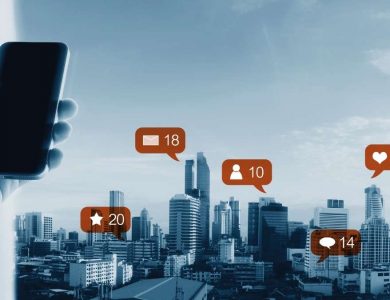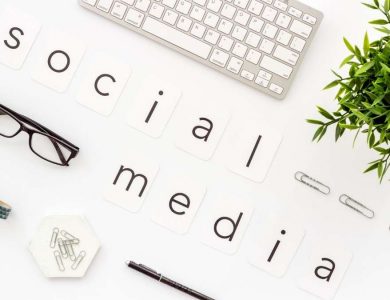AI Influencers and Bots: The Future of Social Media Marketing

In the ever-evolving landscape of digital marketing, artificial intelligence (AI) is beginning to reshape the way brands engage with their audiences. Among the most significant trends emerging from this shift is the rise of AI influencers and bots in social media marketing. These digital personalities are poised to transform the influencer marketing space, offering brands new opportunities for growth, reach, and personalization.
Let’s explore how AI influencers and bots are shaping the future of social media marketing and what this means for brands aiming to stay ahead of the curve.
1. What Are AI Influencers?
AI influencers are computer-generated characters designed to interact with audiences on social media platforms as if they were real people. These virtual personas, created using advanced AI and CGI technologies, are programmed to mimic human-like behaviors, engage with audiences, and promote products or brands.
AI influencers have already gained substantial followings, with some amassing millions of followers across platforms like Instagram, TikTok, and YouTube. They look, sound, and act like real influencers, but unlike their human counterparts, they can be fully controlled by the brands or creators behind them.
Key Benefits of AI Influencers:
- Consistency and Control: AI influencers are fully controlled by the creators or brands, meaning their messaging and behavior are consistent with brand values, without the risk of off-brand activity.
- 24/7 Availability: Unlike human influencers, AI influencers can be active around the clock, engaging with audiences in real-time, across time zones, without breaks.
- Scalability: AI influencers can be programmed to promote across multiple platforms simultaneously and interact with millions of users at once, providing scalability that traditional influencers can’t match.
2. Bots in Social Media Marketing
While AI influencers are human-like avatars, bots are automated systems that perform specific tasks on social media platforms. In social media marketing, bots are often used to manage customer interactions, provide instant responses, or automate certain repetitive tasks.
For example, brands use chatbots to handle customer service inquiries or provide product recommendations. These bots can process vast amounts of data to offer highly personalized customer interactions, which enhances the user experience and drives engagement.
Key Benefits of Bots:
- Efficiency: Bots can respond to multiple queries simultaneously, reducing the workload on human teams.
- Instant Responses: Bots provide immediate answers to customer questions, improving satisfaction and engagement.
- Personalization: By leveraging data, bots can tailor responses and recommendations to individual users, creating a more personalized experience.
3. Why AI Influencers Are Gaining Popularity
AI influencers are rising in popularity for several reasons, particularly due to their reliability, versatility, and cost-effectiveness. While traditional influencer marketing can be expensive and challenging to manage, AI influencers offer a more controlled, scalable, and potentially lower-cost alternative.
Brands can shape AI influencers to match their identity perfectly, avoiding issues related to human influencers who might stray from brand messaging or face public controversies. Furthermore, AI influencers can exist perpetually, allowing brands to consistently engage audiences without the challenges of contracts, availability, or creative differences.
Key Drivers for AI Influencer Popularity:
- Brand Safety: AI influencers can be programmed to align perfectly with a brand’s voice and values, eliminating the risk of off-brand messaging or scandals.
- Global Reach: AI influencers can interact with diverse audiences across multiple languages and regions, ensuring brands can extend their reach globally.
- Content Creation on Demand: AI-generated influencers can produce content consistently without limitations on availability or fatigue, making them ideal for ongoing marketing campaigns.
4. Examples of AI Influencers in Action
Several AI influencers have already made a significant impact in the world of social media:
- Lil Miquela: Perhaps the most famous AI influencer, Lil Miquela is a virtual character with over 3 million Instagram followers. She has partnered with global brands like Prada and Calvin Klein and engages in social causes, making her a unique blend of digital marketing and social advocacy.
- Shudu: The world’s first digital supermodel, Shudu, has partnered with brands like Fenty Beauty and Balmain. Her hyper-realistic appearance and presence in high fashion campaigns make her a striking example of how AI influencers can blend seamlessly with real-world campaigns.
- Bermuda: A more controversial figure, Bermuda is an AI influencer known for her political views and outspoken personality, showcasing how AI influencers can even be programmed to engage in social debates.
These AI influencers offer brands a fresh approach to storytelling, promotion, and audience engagement. They can be stylized to reflect brand values, appeal to specific demographics, and drive engagement in ways that human influencers sometimes struggle to match.
5. How Bots and AI Are Changing Consumer Engagement
In addition to influencers, bots are revolutionizing how brands engage with consumers on social media. From personalized recommendations to direct conversations, bots are being integrated into social media platforms to enhance the customer experience.
For instance, AI chatbots on platforms like Facebook Messenger and Instagram allow brands to offer seamless customer service, 24/7, without the need for human agents. These bots can provide product information, handle order tracking, and even recommend items based on user preferences.
In eCommerce, brands like Sephora and H&M have already successfully integrated chatbots into their social media strategies to offer personalized shopping experiences.
Key Features of Social Media Bots:
- Automated Customer Service: Bots provide immediate responses to frequently asked questions, reducing wait times for users.
- Product Recommendations: Using data-driven algorithms, bots can suggest products based on a user’s browsing history or preferences.
- Interactive Campaigns: Bots can run interactive campaigns like quizzes, surveys, or contests, driving user engagement.
6. Challenges and Ethical Considerations
While the rise of AI influencers and bots presents exciting opportunities, it also raises ethical questions. For instance, transparency is crucial—audiences need to be aware that they’re engaging with AI personalities, not real humans. Misleading consumers with AI-generated content can lead to trust issues, which could harm a brand’s reputation.
Moreover, brands must navigate the line between automation and authenticity. Although AI influencers and bots are effective, over-reliance on them could make a brand seem disconnected from genuine human interaction. Striking the right balance between AI efficiency and authentic engagement will be key.
Ethical Challenges:
- Transparency: Brands must be clear that AI influencers and bots are not real people to maintain consumer trust.
- Data Privacy: Bots that collect user data must comply with privacy regulations like GDPR to protect sensitive information.
- Authenticity: While AI influencers can be engaging, overuse may lead to concerns about a lack of authenticity in marketing.
7. The Future of AI in Social Media Marketing
The future of social media marketing will be shaped by the increasing presence of AI influencers and bots. As technology advances, AI personalities are likely to become even more realistic and capable of building deeper connections with audiences. We can expect to see brands leveraging AI for hyper-personalized marketing campaigns, AI-driven customer service, and seamless, data-backed interactions.
For brands looking to the future, the integration of AI influencers and bots offers a powerful opportunity to enhance their social media presence, streamline operations, and engage with audiences in innovative ways.
Final Thoughts
AI influencers and bots are more than just a trend—they represent a fundamental shift in how brands interact with their audiences. As brands continue to explore the potential of these technologies, those that embrace AI-driven marketing will likely be better positioned to thrive in the evolving digital landscape.
Whether through hyper-personalized interactions, seamless automation, or virtual storytelling, AI influencers and bots are set to redefine the future of social media marketing, offering unprecedented opportunities for growth, engagement, and brand loyalty.


